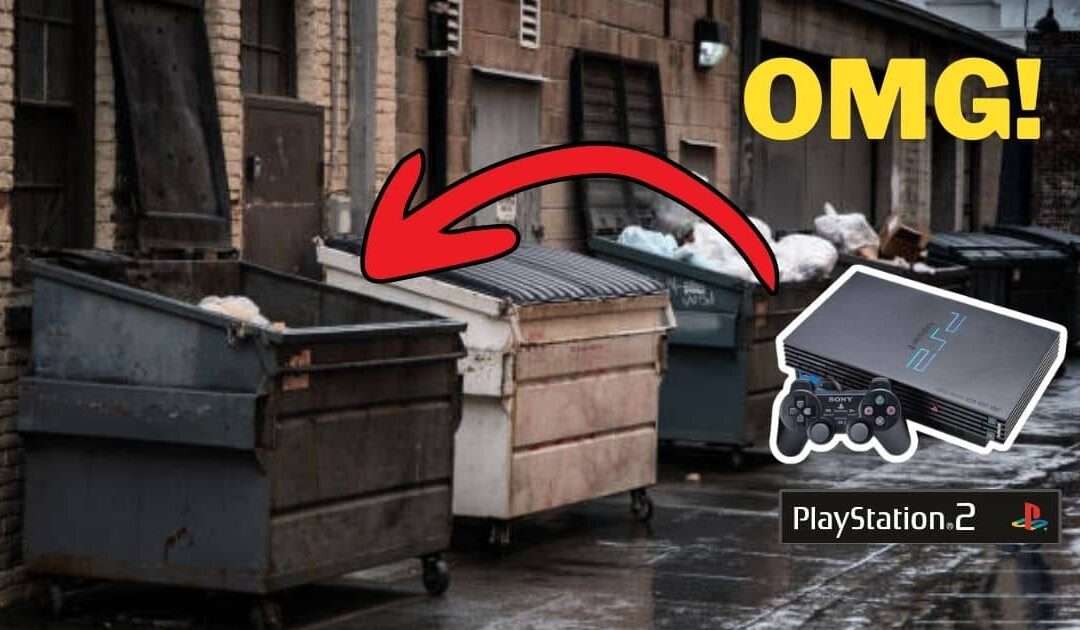What is dumpster diving?
“One person’s trash is another person’s treasure”—this phrase perfectly describes dumpster diving, a practice that challenges rampant consumerism.
Dumpster diving involves searching for useful items like furniture, decor, electronics, and more in dumpsters to prevent them from ending up in landfills or recycling plants, where tons of items in good or even perfect condition are destroyed, buried, or burned every day.
Opening a dumpster lid in a wealthy and consumerist neighborhood might surprise you.
There’s a lot of stigma surrounding this practice, as it’s often associated with homeless people. However, more and more anti-consumerist movements—mainly composed of young people without such prejudices—are joining this kind of sustainable activity.
Dumpster Diving on Social Media
The influencers involved in this activity are not necessarily homeless; many make significant amounts of money rescuing items from dumpsters and reselling them or monetizing their social media platforms.
Finding something valuable for free can be thrilling, and dumpster diving influencers often create viral videos that both entertain and outrage their followers.
Businesses and individuals frequently discard items worth hundreds of dollars—many still in their original packaging—into “organic” garbage bins. Nobody seems to care. People prefer to remain ignorant about how the linear consumerist economic system works, and waste managers don’t like to discuss it either.
Benefits of Dumpster Diving
- Save money: Everything you find is free.
- Start a new business: You can generate income without significant investment.
- Help the planet: By giving items a second life, you prevent waste and reduce the demand for new products.
Is it legal?
Dumpster diving, or stooping, exists in a legal gray area. There aren’t laws explicitly banning it, but there aren’t clear regulations either. Giving a second life to items found in dumpsters or sharing abandoned objects on the street may not seem glamorous, but it’s good for the planet. Scaling up these activities could have positive effects, though it might also complicate waste management and urban planning. Let’s hope no bureaucrat decides to ban it outright—and if it is regulated, it should encourage the practice, not hinder it.
If dumpsters are on public property, searching them is generally legal. However, if they’re located on private property, you could be breaking the law.
How to Practice Dumpster Diving
- Wear gloves: Protect your hands from cuts and dirt.
- Research good locations: High-income neighborhoods or shopping centers are excellent options.
- Be respectful: Leave items you don’t want where you found them.
The Positive Impact of Dumpster Diving
Dumpster diving not only benefits your wallet, but it also helps the environment. Rescuing useful items prevents waste generation and reduces the demand for brand-new products.
Dumpster diving has become a statement against the culture of waste. Many see it as a form of rebellion against consumerist society.
Local Donations: A Great Alternative
The easiest way to get rid of an item is to toss it into the nearest dumpster, but what if you could walk a few extra blocks to donate it or leave it for someone else? With this small effort, you could prevent waste managers from prematurely ending the item’s useful life. Depending on the circumstances, you might even receive some money for it.
Generating money from donations is the business model of organizations like Goodwill, Traperos Emaús, or Salvation Army. If this model were scaled up, it could reduce waste and provide affordable quality products to low-income people. Tools like the Greenriot App facilitate this process.
Money and incentives drive the world. If we make it easier to monetize the task of receiving and reselling donations, more people will engage in these activities. By scaling them up, we could prevent thousands of tons of waste, rescue valuable items, and simultaneously reduce the demand for brand-new products.

Conclusion
Dumpster diving is an exciting and sustainable way to save money, reduce waste, and help the planet. With the right tools and a bit of caution, you can turn what was destined for the trash into a true treasure to decorate your home or sell for profit.
